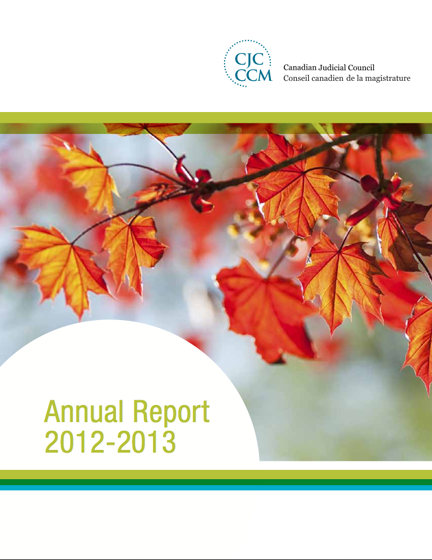The Canadian Judicial Council is seeing a significant increase in complaints about judges it deems to be an abuse of process or clearly irrational, according to the organization’s
annual report released last week.

“There has been an increase in the number of files deemed by the executive director to be an abuse of the complaints process or ‘clearly irrational,’ pursuant to the complaints procedure,” according to the 2012-13 annual report. In fact, it sent 34 such letters in the most recent year compared to 28 in 2011-12, and eight in 2010-11, and nine in 2009-10, the council reported.
In one case, an individual wrote to the council in 2003, 2004, 2005, 2010, 2011, and 2012 with concerns about a disputed land ownership matter. In his letters, he made “vague allegations of fraud and conspiracy on the part of various lawyers and judges” and sent the CJC various court documents, according to the annual report.
“It was unclear what he wanted council to do with these documents,” the report states.
“In light of our history of exchanges, council’s numerous attempts to clarify our mandate and the writer’s continual submission of court documents without any credible or clear complaint, we advised the individual that his correspondence constituted an abuse of the complaints process and that we would be taken [sic] no action.”
Other matters, however, were more substantive. In one case detailed in the report, an observant Jewish woman called for jury duty on dates that corresponded with the Jewish holiday of Sukkot complained to the council after the judge failed to give her a chance to explain her situation. The woman went to court for jury selection on Sept. 28, 2012, with proceedings resuming on Oct. 1, a day that conflicted with Sukkot. While the judge quickly excused a rabbi who made his case on Sept. 28, the woman had no such luck when she tried to speak out during the challenge-for-cause process. “No, you are not a rabbi,” the judge told her. The woman never got a chance to explain herself that day and came back Oct. 1. The judge excused her from jury duty when she explained that Sukkot requires Jews not to work that day.
The woman went ahead with a complaint because, according to the report, she felt the judge had ordered her to act in a way that contravened her religious beliefs. In its report, the council noted it had closed the file as the issue was “a result of scheduling” and “no malice was intended,” but it nevertheless provided a reminder about how to handle such situations: “All judges have an obligation to treat everyone who appears in court with appropriate courtesy.”
“In this particular case, the judge may not have conveyed the appropriate amount of consideration and sensitivity and the judge offered an apology and wrote that he did not intend to offend the complainant or her religious beliefs.”
Besides the complaints detailed in the report, the council also saw a significant increase in correspondence with complainants on files that may or may not lead to a formal review by the judicial conduct committee. During the most recent year, it sent 233 letters to people seeking clarity on its mandate or who were expressing dissatisfaction or complaints. That was up from 163 in 2011-12; 114 in 2010-11; and 83 in 2009-10.

 “There has been an increase in the number of files deemed by the executive director to be an abuse of the complaints process or ‘clearly irrational,’ pursuant to the complaints procedure,” according to the 2012-13 annual report. In fact, it sent 34 such letters in the most recent year compared to 28 in 2011-12, and eight in 2010-11, and nine in 2009-10, the council reported.
“There has been an increase in the number of files deemed by the executive director to be an abuse of the complaints process or ‘clearly irrational,’ pursuant to the complaints procedure,” according to the 2012-13 annual report. In fact, it sent 34 such letters in the most recent year compared to 28 in 2011-12, and eight in 2010-11, and nine in 2009-10, the council reported.